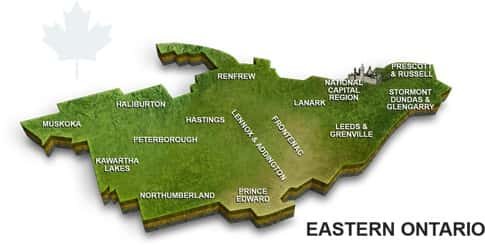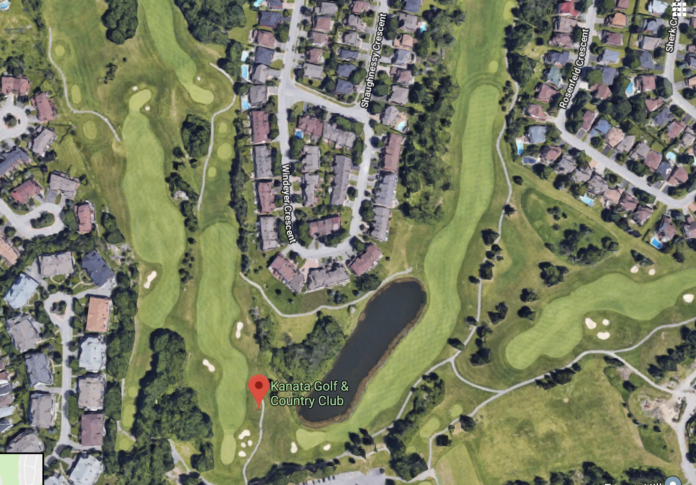Ontario Construction News staff writer
An Ontario court judge has poured cold water on plans to turn the Kanata Lakes Golf and Country Club into a housing community, upholding a 40-year-old agreement.
Instead it must remain as open and recreational space – even though the city is not required to maintain the golf course on the site.
The property’s owner, ClubLink, had sought to turn the golf course into a 1,500-home development with partners Minto Communities and Richcraft Homes.
However, there was a problem with this plan. In a 1981 agreement, the course’s former owners had agreed that if they ceased operating it as a golf course, the land would revert to the city. A later agreement clarified that the city did not need to continue operating it as a golf course, but could maintain it for other recreational uses.
Not surprisingly, neighbours represented by Kanata North Coun. Jenna Sudds did not want to see the intensification of the green space near their homes, but the developers thought they had a way around the issue because of the Perpetuities Act.
This law most commonly applies in estate settlement situations, and essentially restricts limits on property transactions after 21 years after the death of the last surviving immediate heir to the estate.
“At its most fundamental essence, the rule dictates that certain equitable interests will become void if they are not exercised within 21 years from the date of their creation,” Rick O’Connor, the city clerk and solicitor, wrote in 2019. “It is possible that ClubLink will argue that the perpetuity period limitation applies and that the agreements are not enforceable against them.”
Sudds told the Canadian Broadcasting Corp. (CBC) that she burst into tears over the decision last Friday (Feb. 19). She called it “terrific news” for the community. As many as 500 homes back onto the course and more than 1,000 households use the grounds for recreation, she said.
“The green space, the golf course itself, which really is right in the middle of our community here, is used by the community quite frequently,” said Sudds,. “I see people out all hours of the day throughout the winter. It’s amazing to see all the tracks snowshoeing and skiing and dog-walking.”
ClubLink purchased the 50-year-old course in 1997. It announced in December 2018 that it planned to redevelop part of the property.
Local residents, along with the newly elected councillor and the city’s own legal department, argued that the development shouldn’t go ahead because of the 1981 legal agreement between then City of Kanata and the developer. That agreement called for 40 per cent of the area in Kanata Lakes to be open space in perpetuity.
“The 1981 Agreement continues to be a valid and binding contract,” Ontario Superior Court Justice Marc Labrosse wrote in his 44-page decision.
CBC reported it is unclear whether the company will appeal the decision.
Late last year, council rejected the formal planning application from ClubLink to turn the property into a housing subdivision, arguing the decision was premature due to outstanding legal issues.
ClubLink has appealed council’s decision to the province’s Local Planning Appeal Tribunal, which is set to hear the case early next year. Sudds said the city will ask ClubLink to withdraw its appeal because of the court’s decision.
The original 1981 agreement, which has been updated several times, including when ClubLink purchased the property 23 years ago, stipulated that if the original owners of the golf course wanted to get out of the business and couldn’t find another operator, the land would go to the city “at no cost,” and the city would operate it as a golf course.
However, the more recent 1997 agreement between the city and ClubLink says the lands can be used as a golf course, or if that doesn’t work out, “remain open space lands.”
Labrosse found that the 1997 agreement let the city off the hook from running the Kanata golf course.
“The city’s obligations under … the 1981 Agreement are not triggered if the city discontinues the golf course use provided that it continues to use the land for recreational and natural environment purposes,” he wrote.








